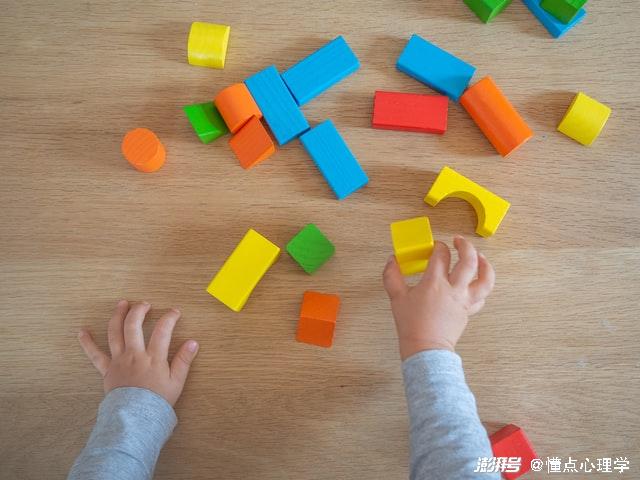Author/Undergraduate student, School of Psychology and Cognitive Science, East China Normal University, Zhang Xinwen
Chen Xi Associate Professor, School of Psychology and Cognitive Science, East China Normal University
Operations/Yang Xiao
"The rope saws the wood and the water drops the stone." Children who can persist in difficult tasks can often achieve higher academic achievements, better work performance and better social relations. So as a nurturer, how to cultivate children’s perseverance? Imagine a scene in which a child is slowly and clumsily tying his shoelaces at the door after eating in the morning and getting ready for school. As a parent, do you want to tie his shoelaces? As a matter of fact, it is probably not conducive to the cultivation of children’s perseverance for parents to complete tasks for their children.
The more times parents complete tasks for their children, the less perseverance they have.
The researchers asked 34 parents to work out difficult puzzles with their children aged 4 to 8, and asked parents to report their children’s perseverance.

Figure/unsplash
In the interaction, parents often show the following behaviors:
First, encourage. For example, parents say, "Well done!"
Second, direct guidance. For example, parents say, "Put the red puzzle here."
Third, indirect guidance. For example, parents cover other puzzles and let children focus on one piece.
Fourth, put forward the problem of teaching style. For example, parents ask their children, "Do you think this puzzle is in the picture?"
Fifth, take over, that is, complete the task for the children. For example, parents help children put a puzzle together.
Sixth, give up. For example, parents say to their children, "Let’s stop and try the next one."
The researchers found that parents who tend to finish tasks for their children, the worse their children’s perseverance, are more likely to give up.
Adults completing tasks for children shortens children’s persistence time.
In another study, the researchers randomly divided 150 children aged 4 to 5 into three groups, and each group of children performed different activities.
Children in the "takeover" group need to participate in two jigsaw puzzles. In each puzzle task, after the children tried it for about 10 seconds, the experimenter said to the children, "This is too difficult. Let me help you finish it." Then I finished the puzzle for the children.
The children in the "teaching" group also participated in two jigsaw puzzles, but the experimenter did not help the children by himself, but helped the children to complete the task by prompting or asking questions. For example, the experimenter prompts children to find a puzzle of a certain shape, or asks them, "Is this puzzle in the picture?"
Children in the control group did not participate in jigsaw puzzles.

Figure/unsplash
After the puzzle task, the experimenter gave each child a closed wooden box, and when you shook it, you could hear something inside, but in fact the box could not be opened. The experimenter said to the child, "I wonder if you can open it." If you think you can’t open it, you can play with another toy and I will help you. " The experimenter recorded how long the child persisted in trying to open the box.
The researchers found that the children in the "takeover" group persisted for a shorter time than the children in the "teaching" group and the control group, which showed that the adult "takeover" would indeed damage children’s perseverance in subsequent tasks.
However, in life, when time is short or children really need adult help, adults have to "take over". How can adults reduce the negative impact of "taking over" when they have to complete tasks for children? Does it work to replace the statement "I’ll help you" with the statement "It’s my turn"?
Just changing the language can’t eliminate the negative effects of completing tasks for children.
To explore the above problems, the researchers randomly divided 60 children aged 4 to 5 into two groups.
The children in the "takeover" group played a jigsaw puzzle. After about 10 seconds, the experimenter said to the children, "This is too difficult. Let me help you finish it." Then they finished puzzles for children.
The children in the "take turns" group also played jigsaw puzzles. After about 10 seconds, the experimenter said to the children, "Now it’s my turn." Finish the puzzle for the children.
After the puzzle was finished, both groups of children performed wooden box tasks, and the experimenter recorded the time when the children tried to open the wooden box. The results showed that the children in the "take turns" group did not last longer than those in the "take over" group. This result suggests that when adults complete tasks for their children, it is not effective to just use words to replace the saying "I’ll help you" with the saying "it’s my turn".
In order to improve children’s perseverance, parents and teachers try not to complete difficult tasks for their children. Completing the task for children may make children feel that "the task is too difficult to complete by themselves" or "when the task is difficult, there will be adults to help me solve it" Such ideas are not conducive to children learning to persist and bravely overcome difficulties. Even people who have just met, such as experimenters, take over will have a negative impact on children’s perseverance.

Figure/unsplash
Is there any way to reverse the negative impact of "takeover"? The methods in different situations may be different, but "actions speak louder than words" is certain-just changing the words when taking over doesn’t work, and maybe it is more effective to convince children that they have the ability to complete the task, without others taking over and no one will take over.
It should be noted that the study was completed in the United States, which pays more attention to autonomy, and whether its conclusion is applicable to China culture needs further verification, although a large number of studies have found that children and adolescents in China can also benefit from parents’ autonomy support.
In short, adult caregivers should try their best to avoid completing difficult tasks for children without necessity, so as to cultivate children’s perseverance. Parents may wish to encourage their children to work hard and give appropriate tips. The next time you go out, remember to let your children tie their shoelaces by themselves, even if it may cause you to go out ten minutes late.
References:
Leonard, J. A., Martinez, D. N., Dashineau, S. C., Park, A. T., &Mackey, A. P. (2021). Children persist less when adults take over. Child Development.
关于作者